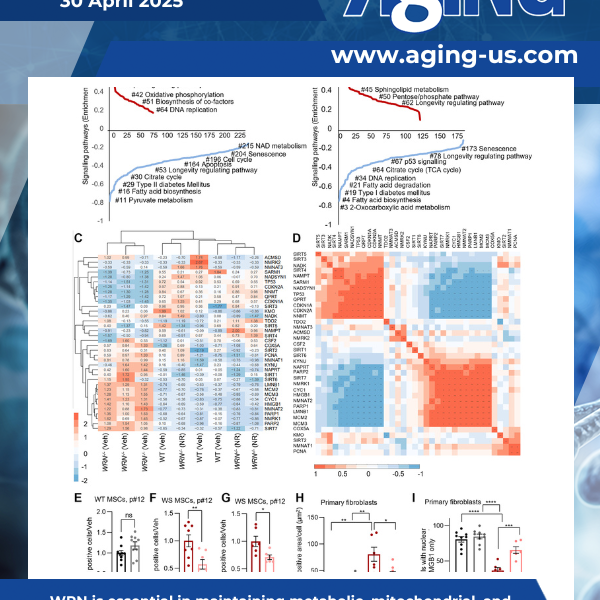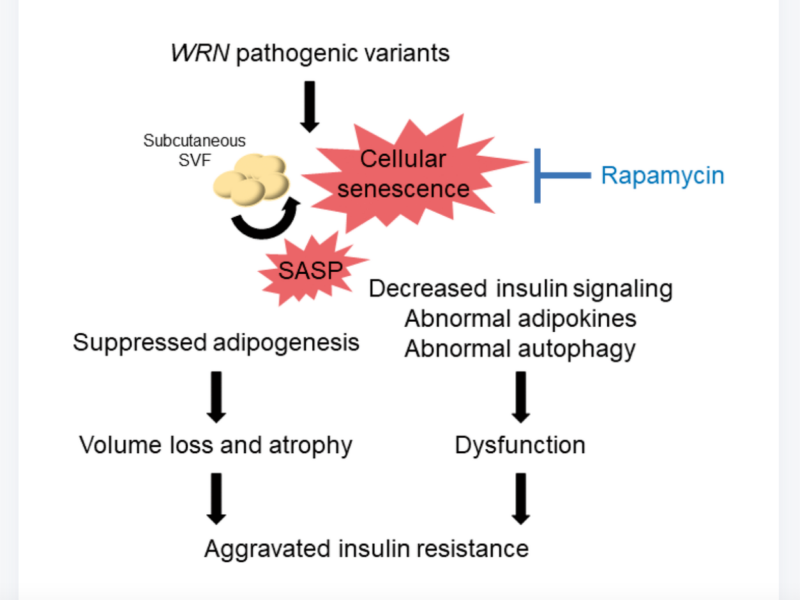Werner syndrome is a rare condition marked by accelerated aging. A recent study, featured as the cover paper in Aging (Aging-US), Volume 17, Issue 4, led by researchers at the University of Oslo and international collaborators, suggests that nicotinamide adenine dinucleotide (NAD+), a vital molecule involved in cellular energy production, may be key to understanding this disease and developing future strategies to manage it.
Aging (Aging-US) Research

Werner syndrome (WS), caused by mutations in the RecQ helicase WERNER (WRN) gene, is a classical accelerated aging disease with patients suffering from several metabolic dysfunctions without a cure.

In this new study, researchers used proteomics to investigate Werner syndrome and proteins associated with age and/or genotype in the serum and liver of mice.

In this new study, researchers from Japan investigated the molecular mechanisms of subcutaneous fat dysfunction in Werner syndrome.

